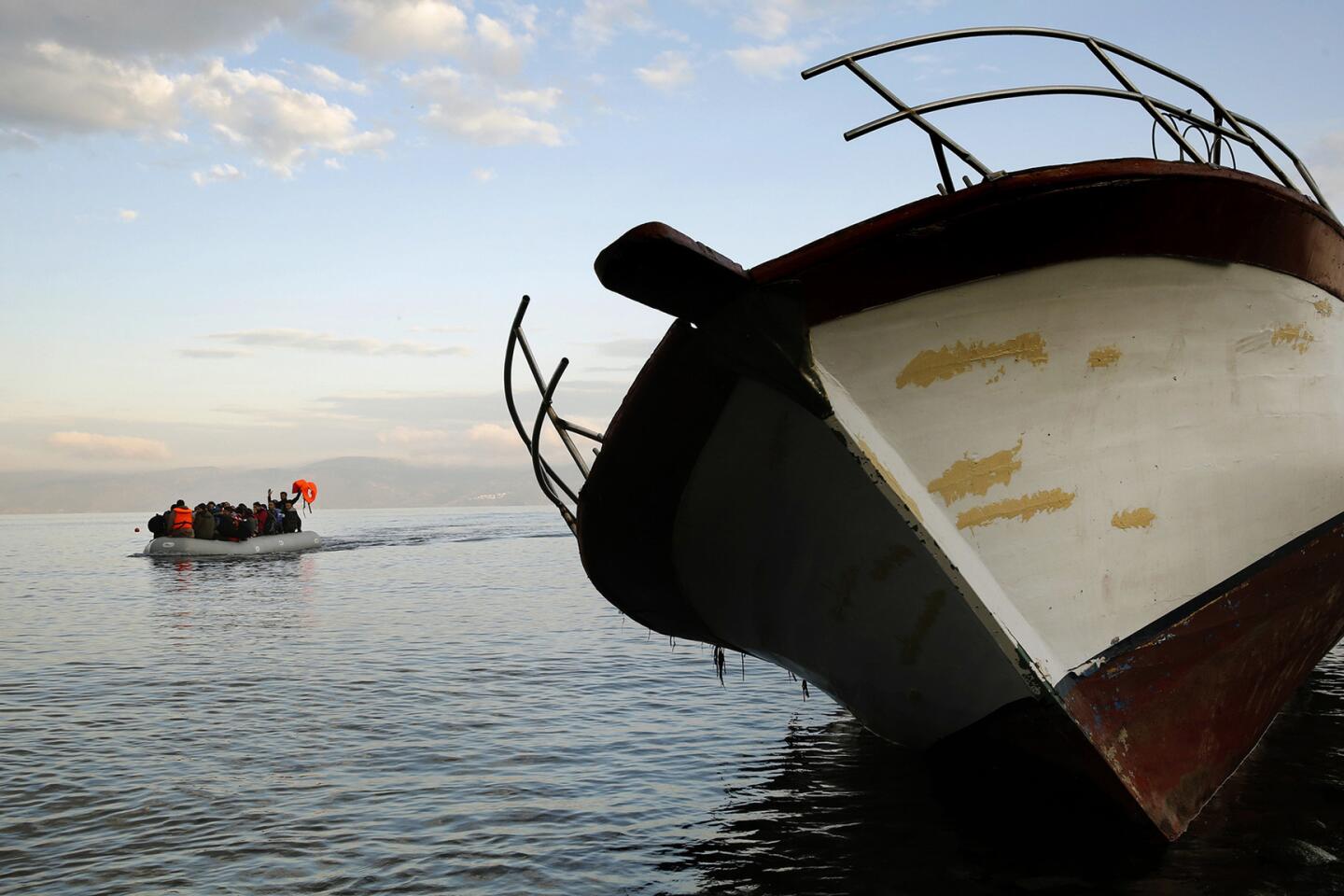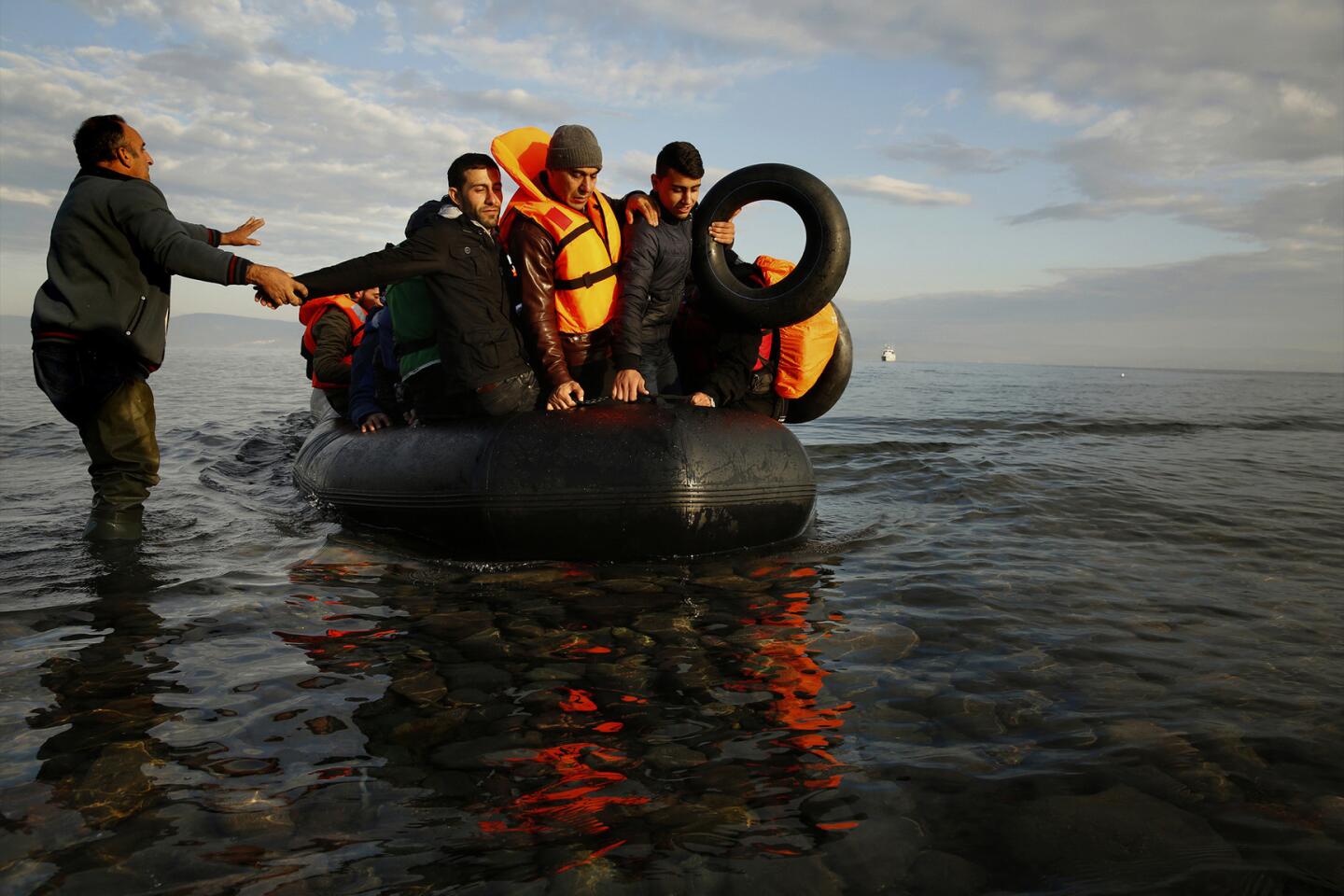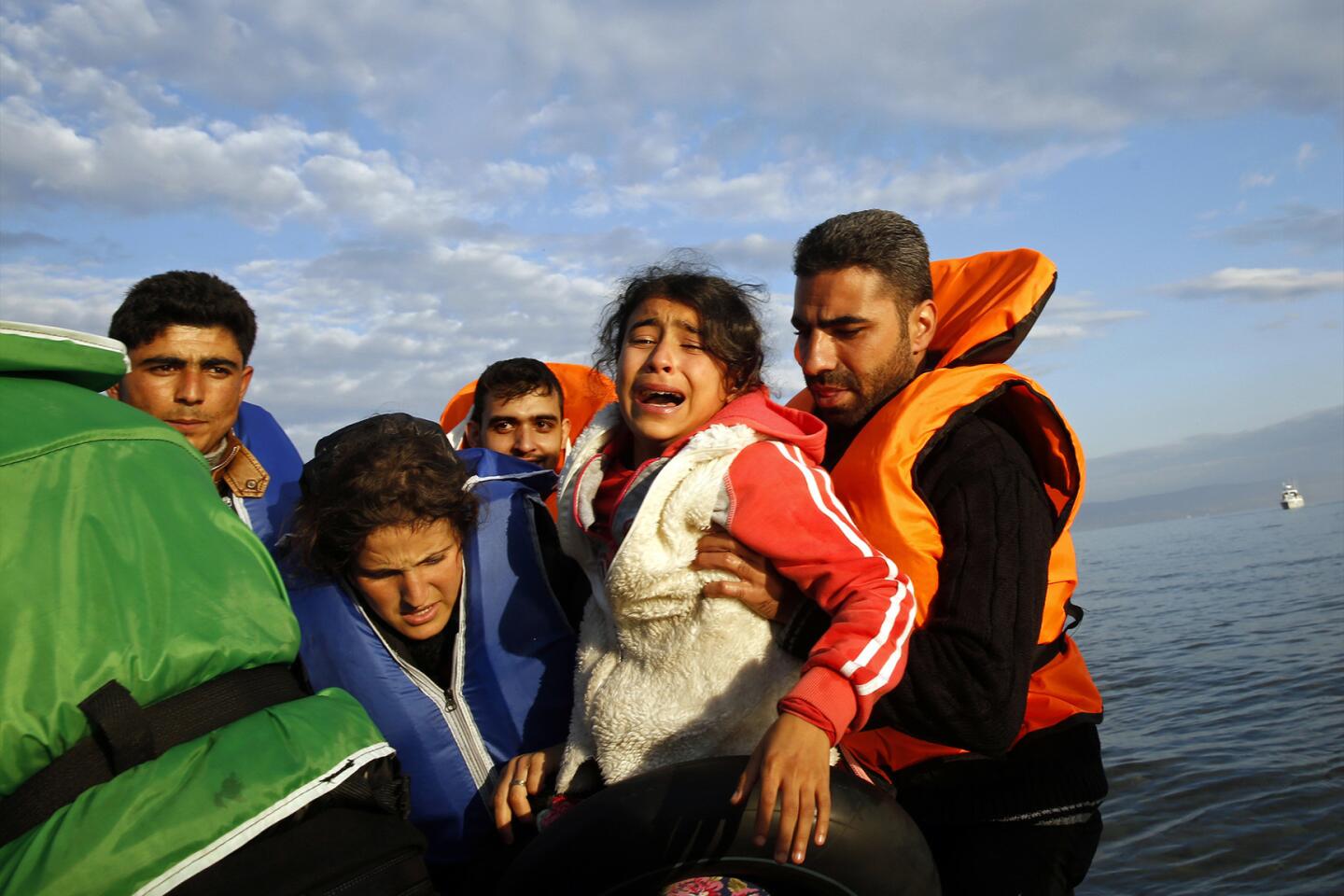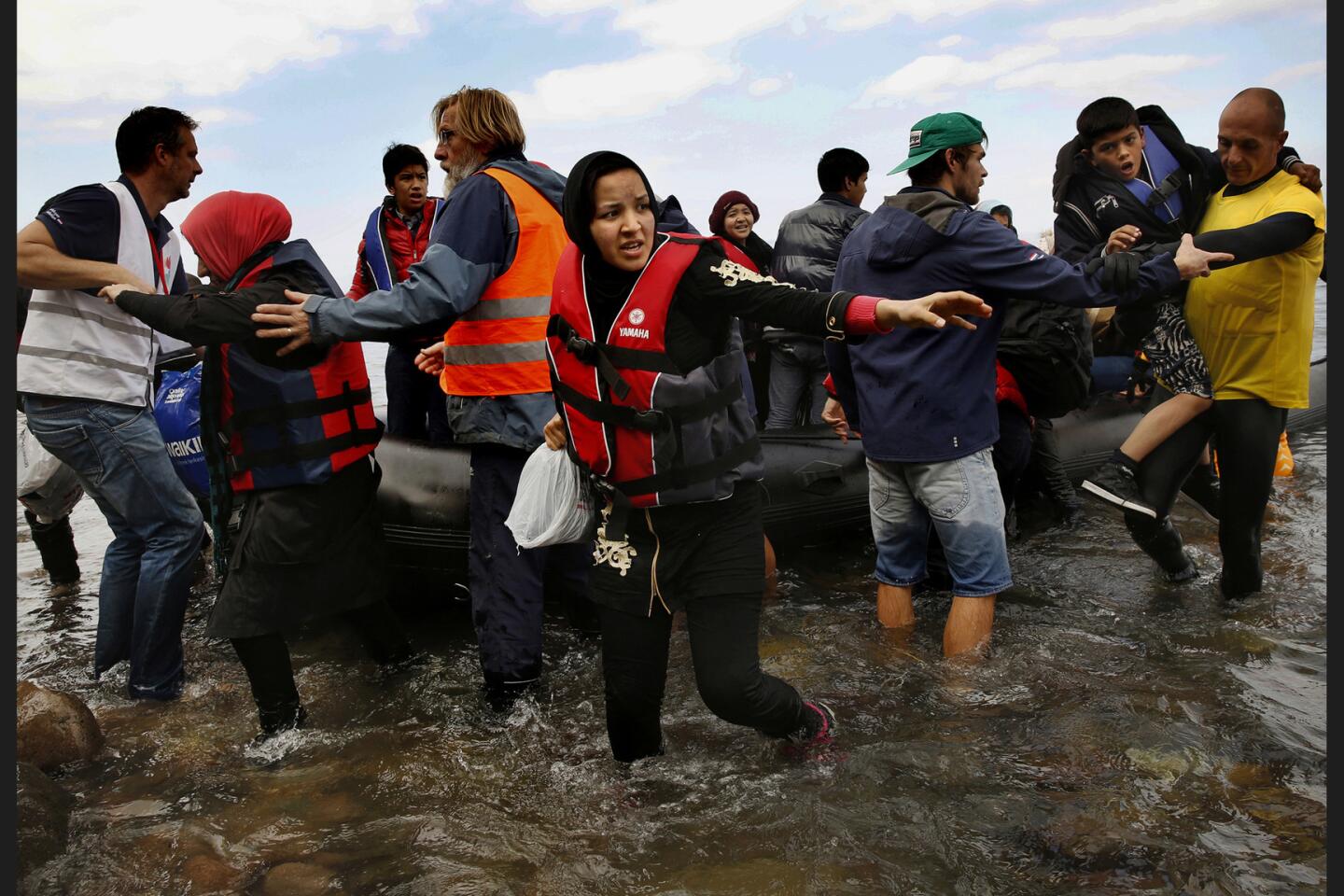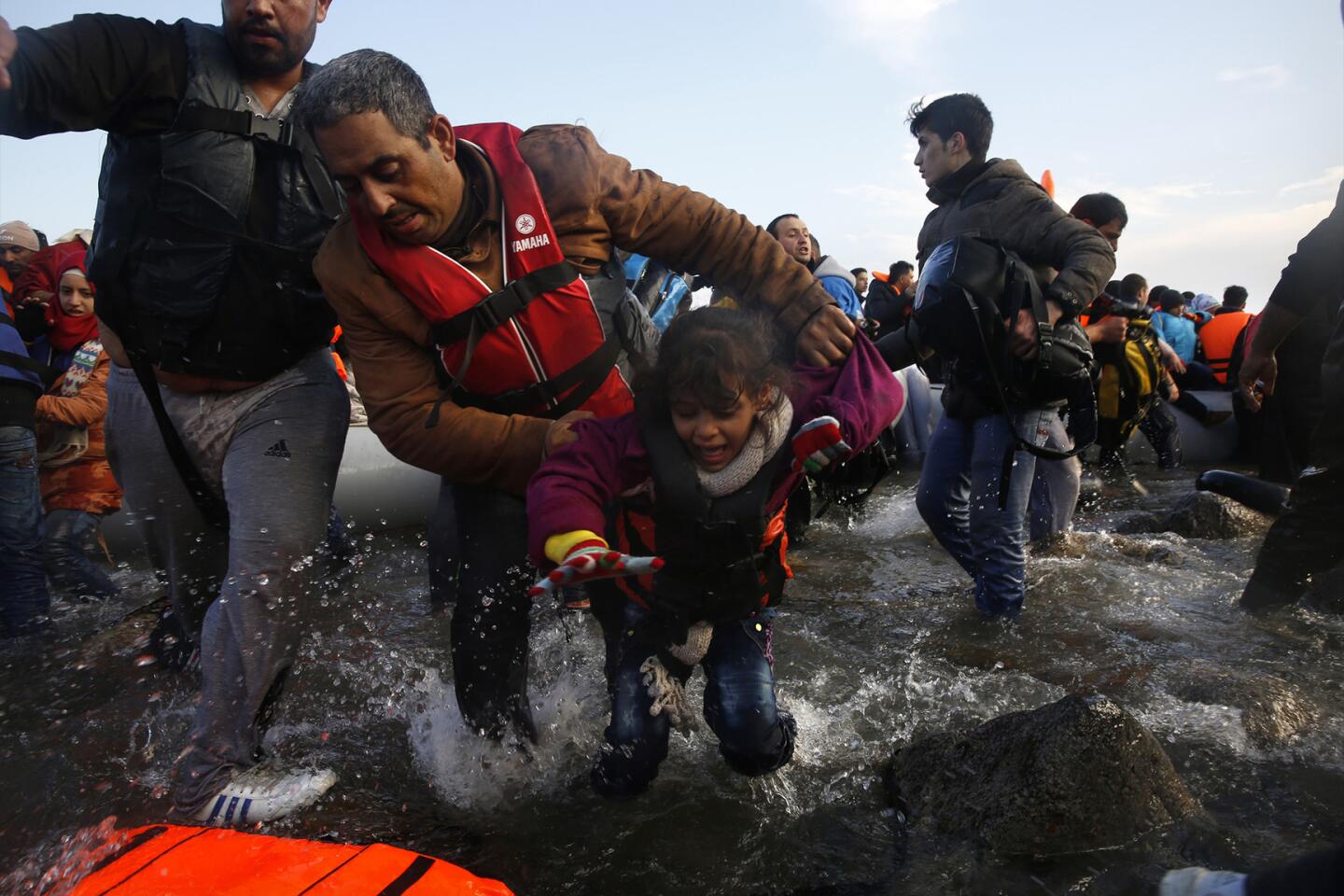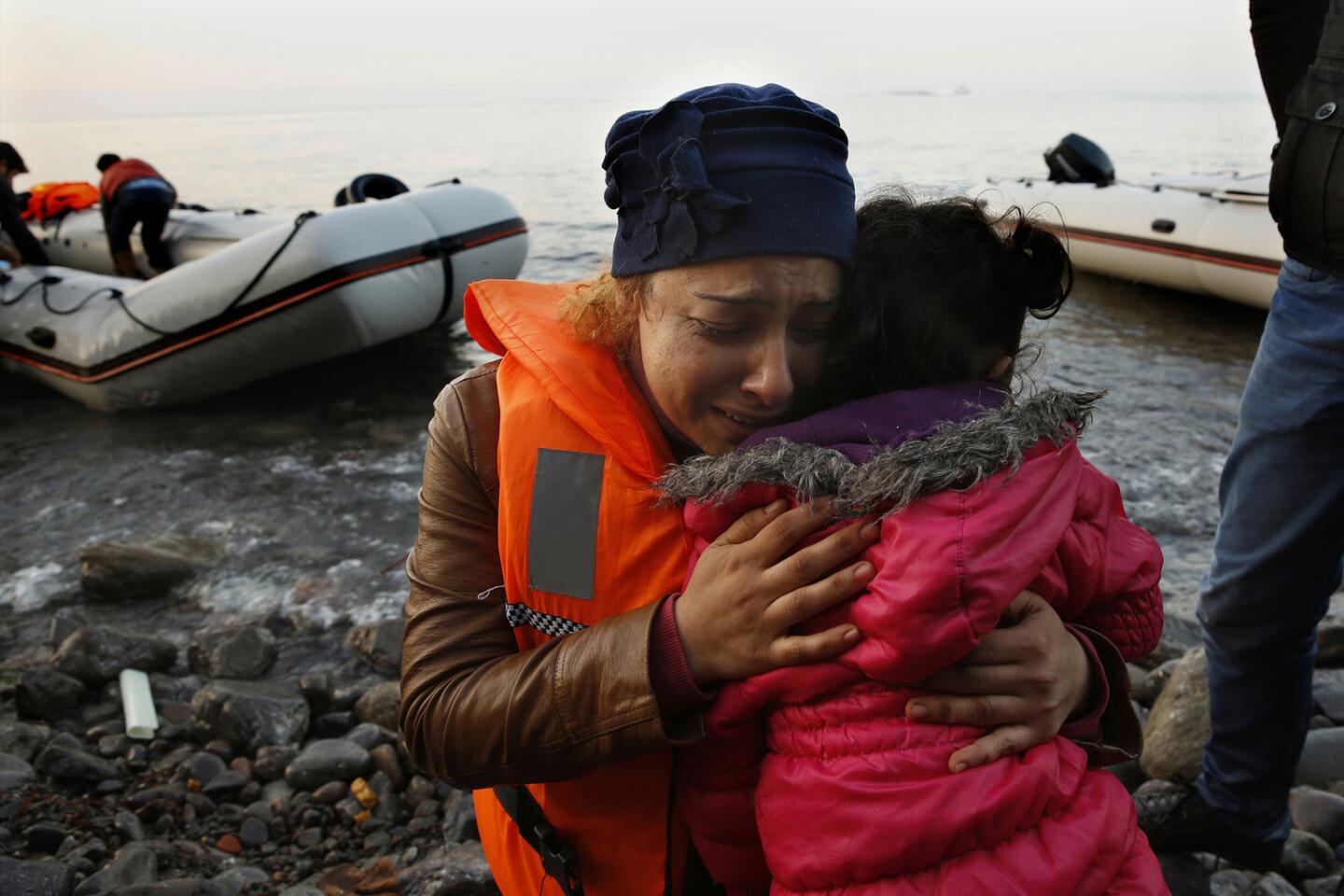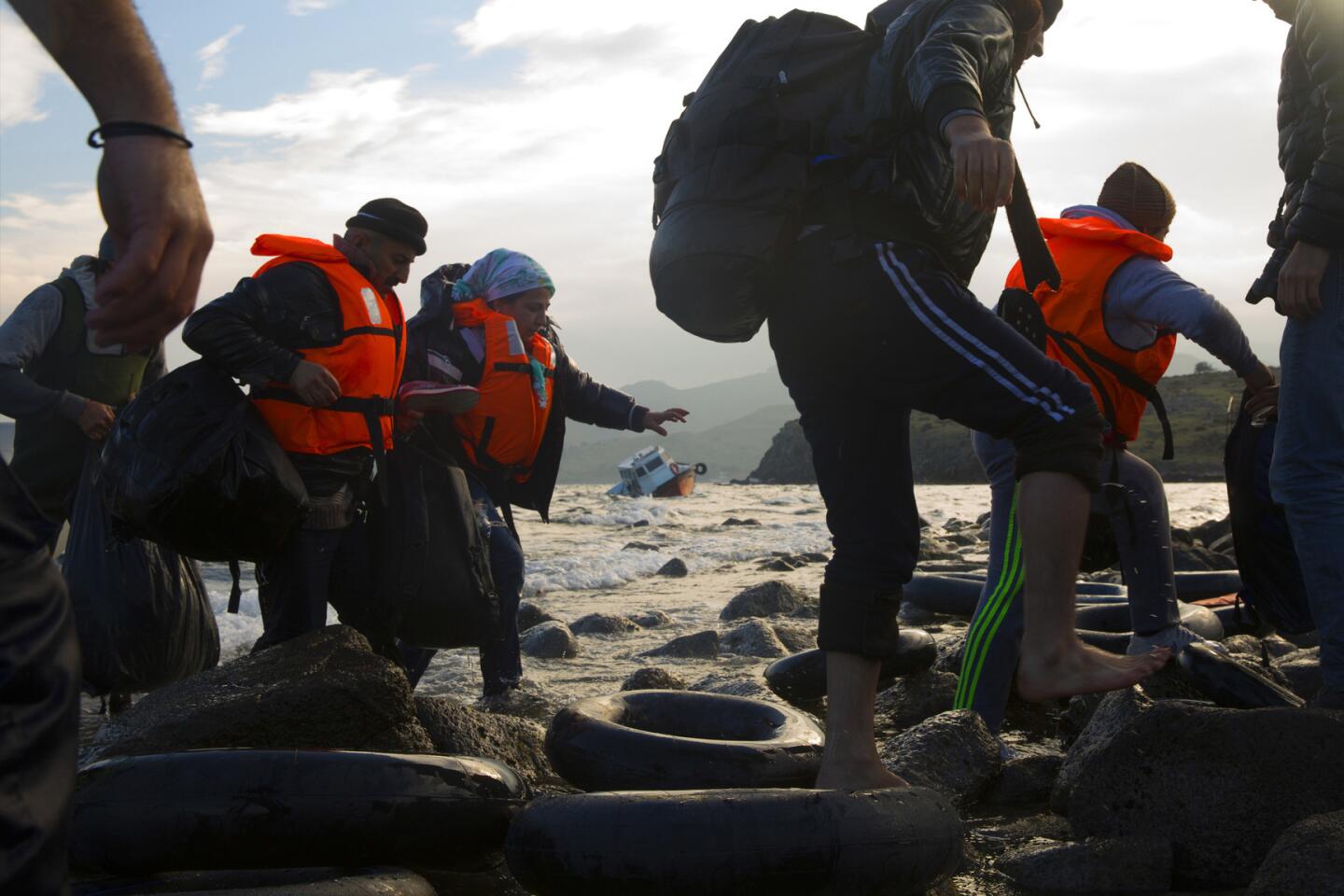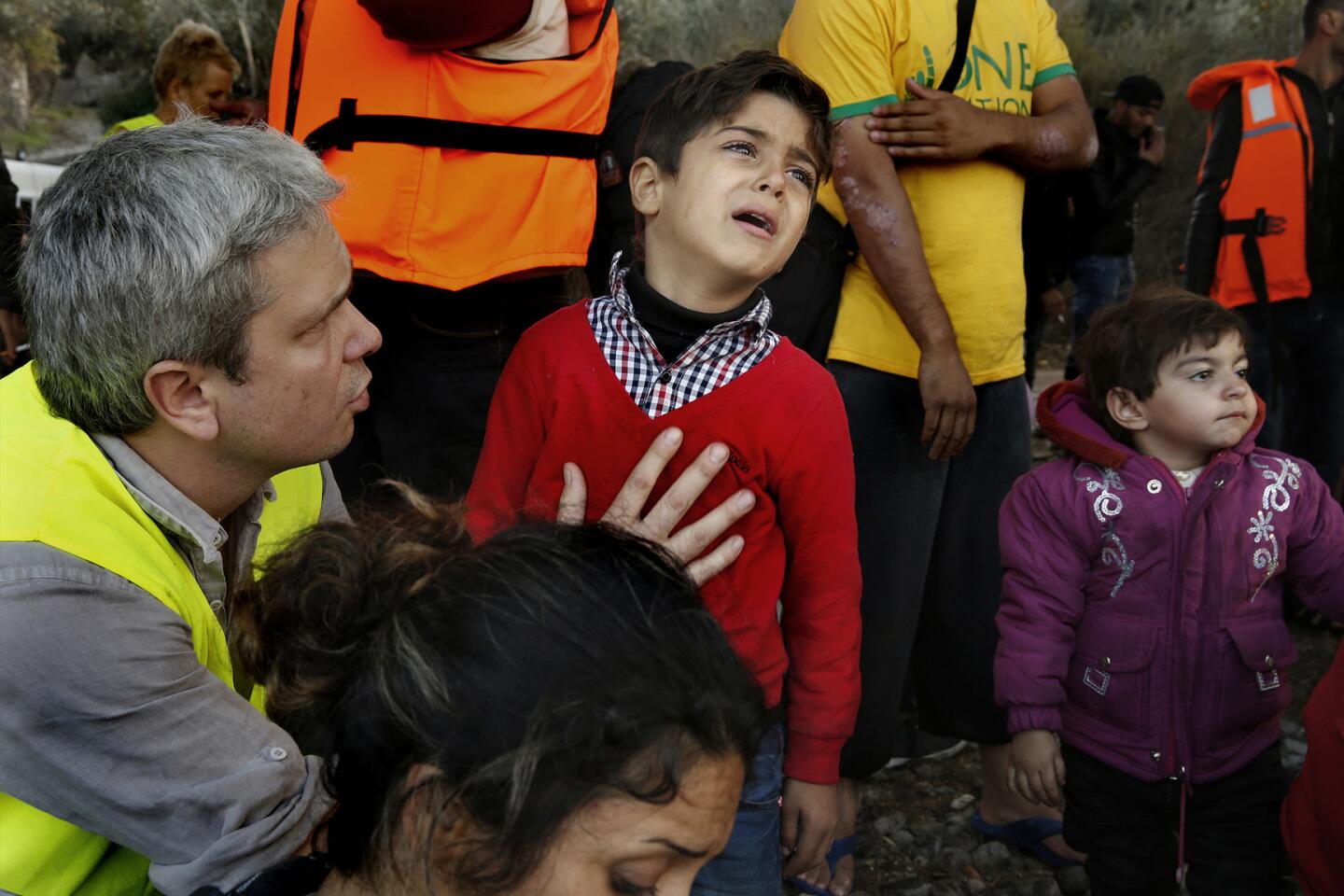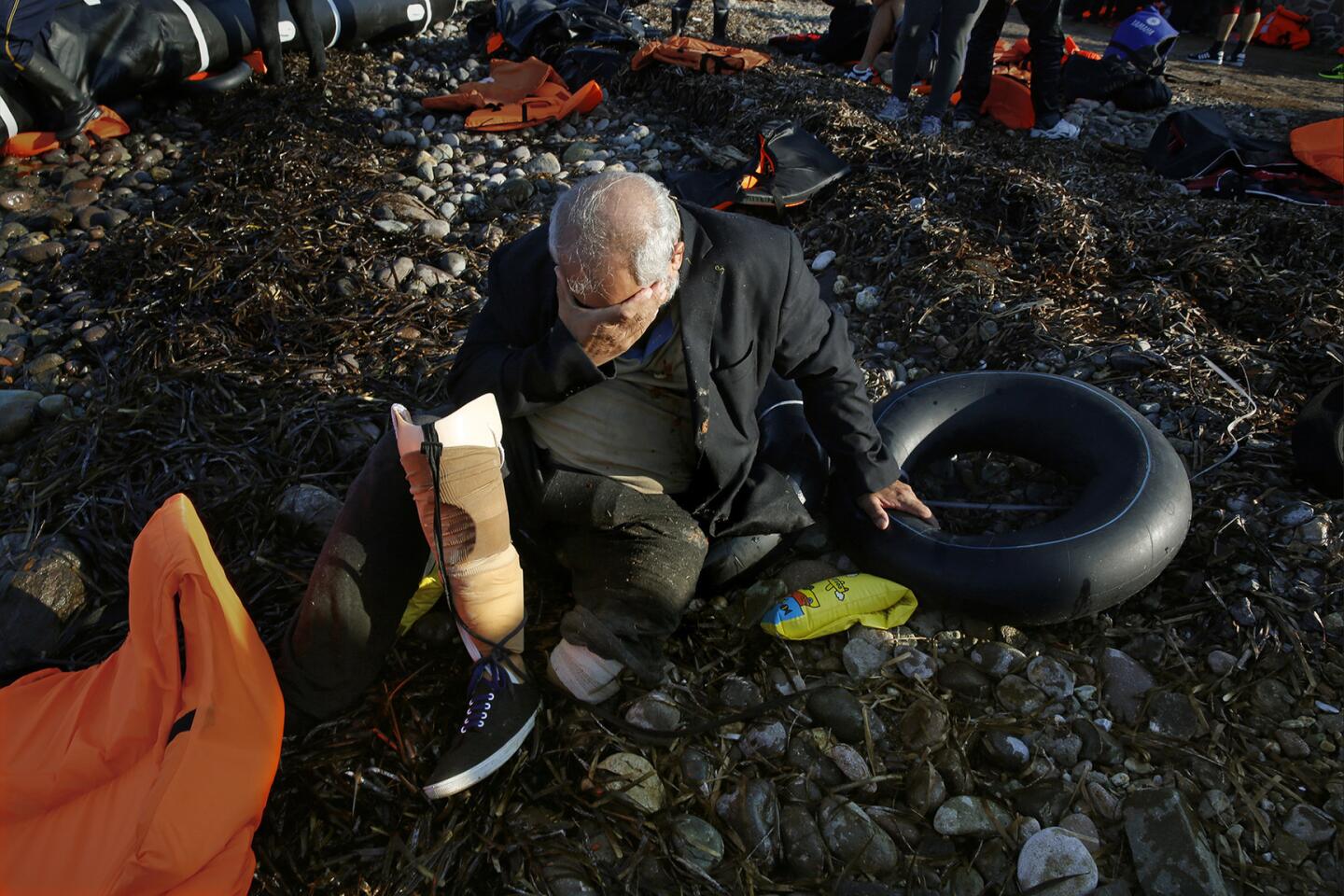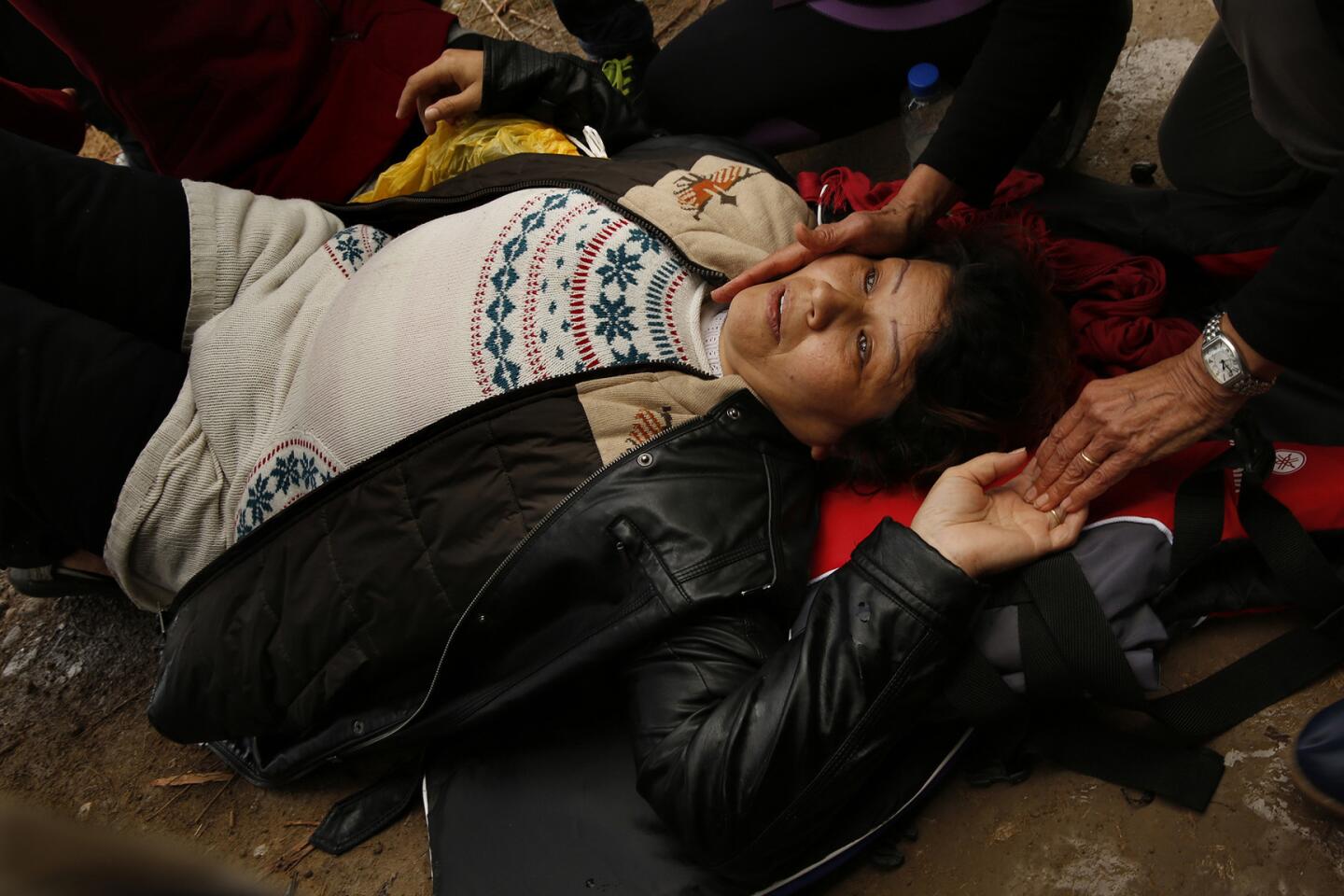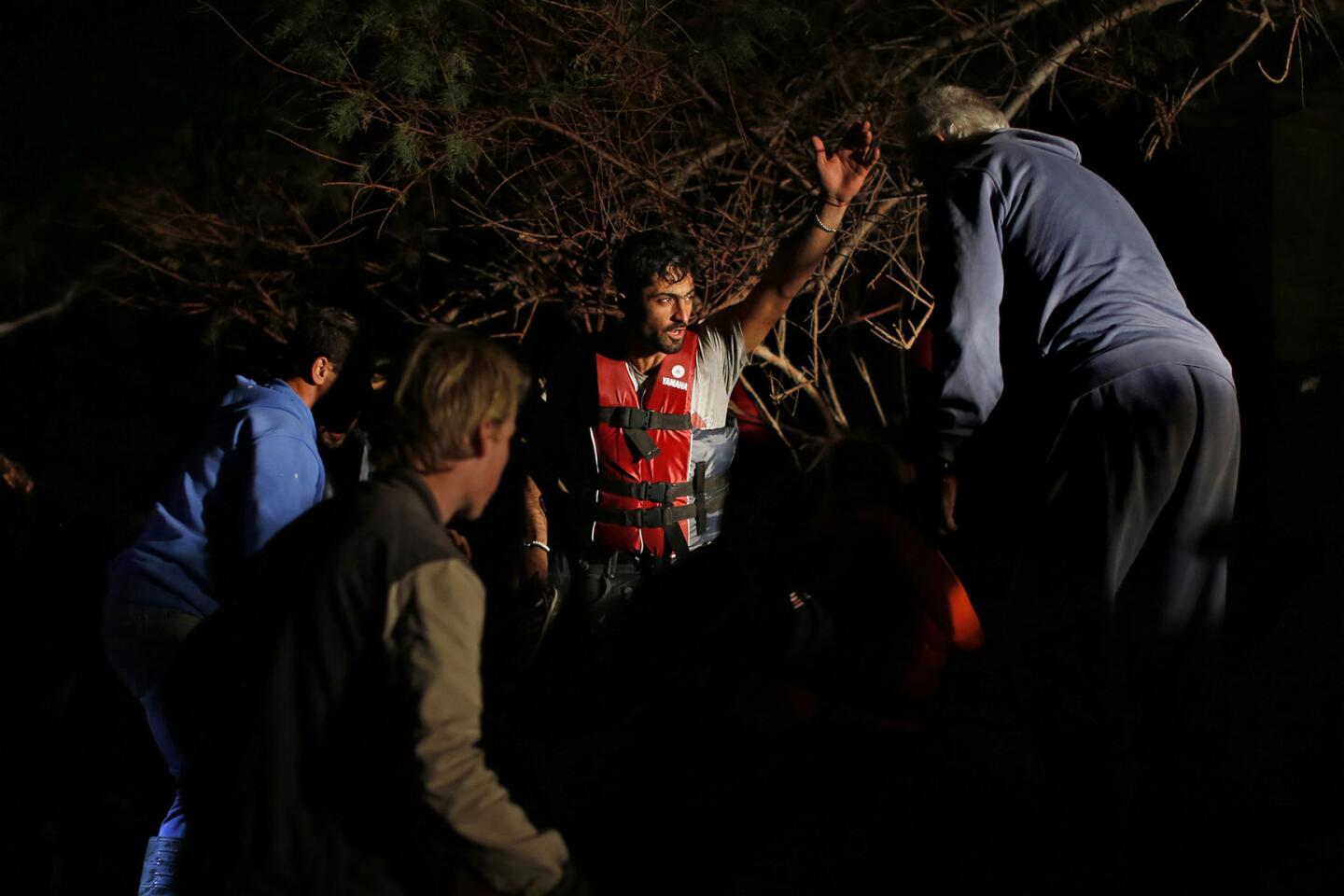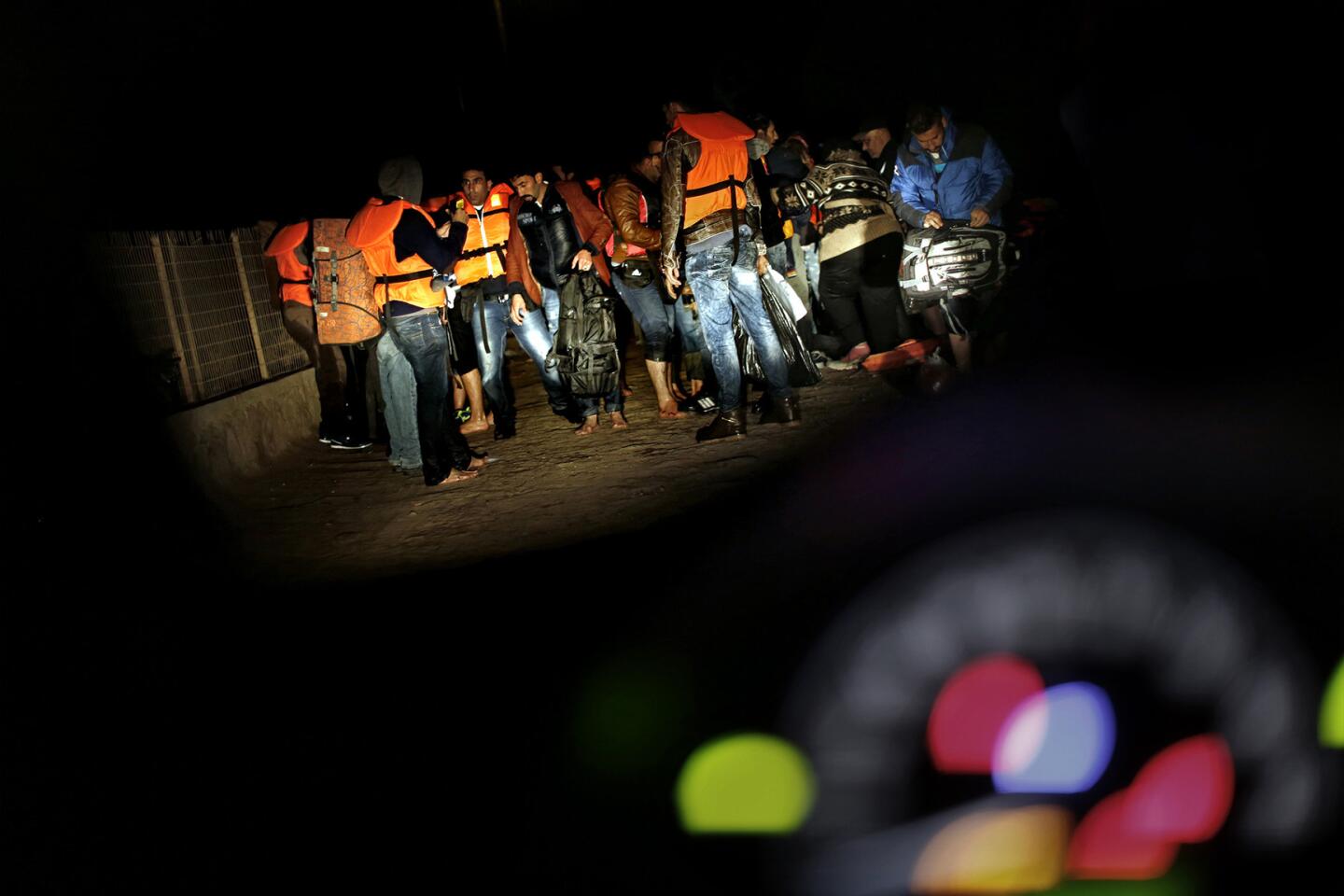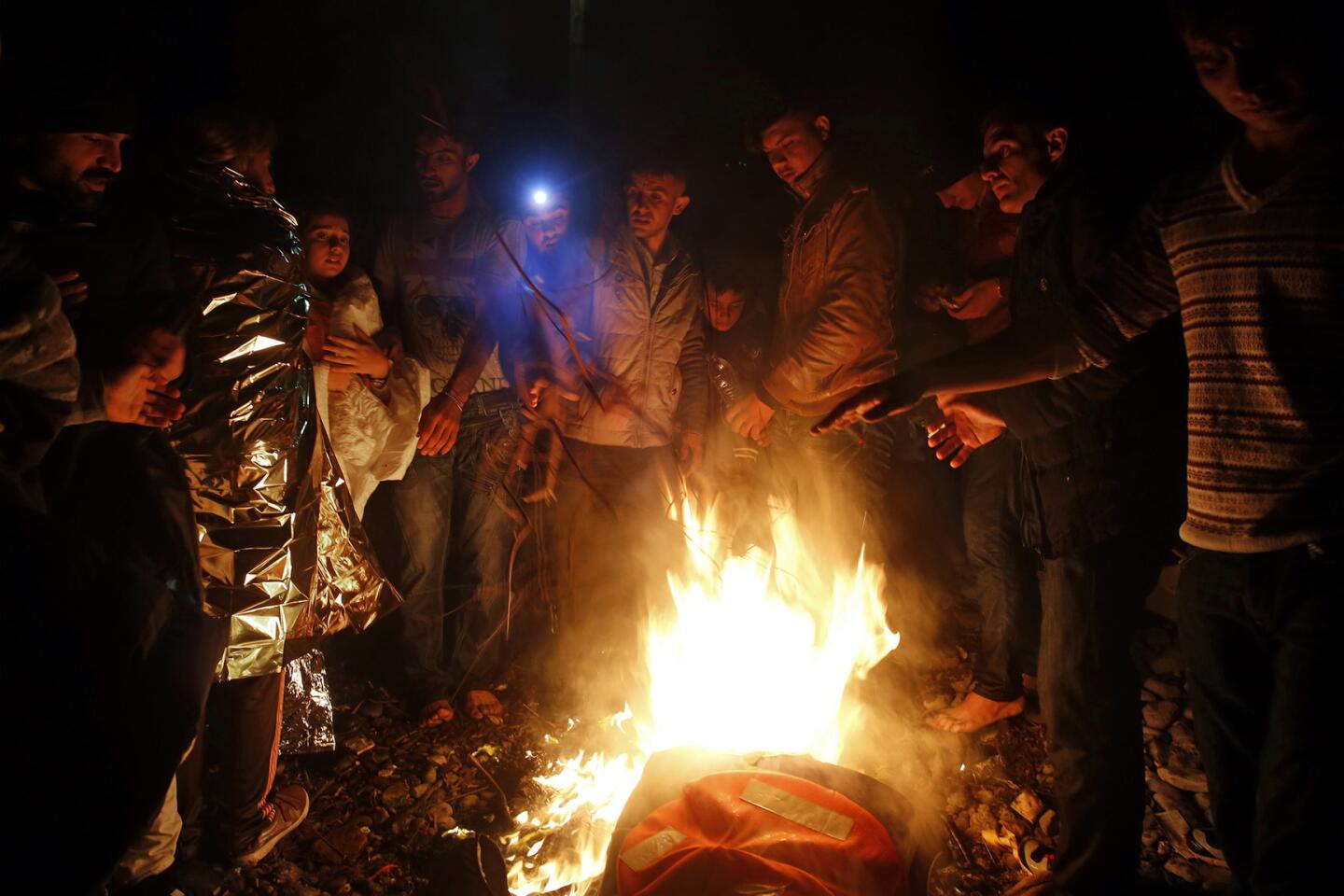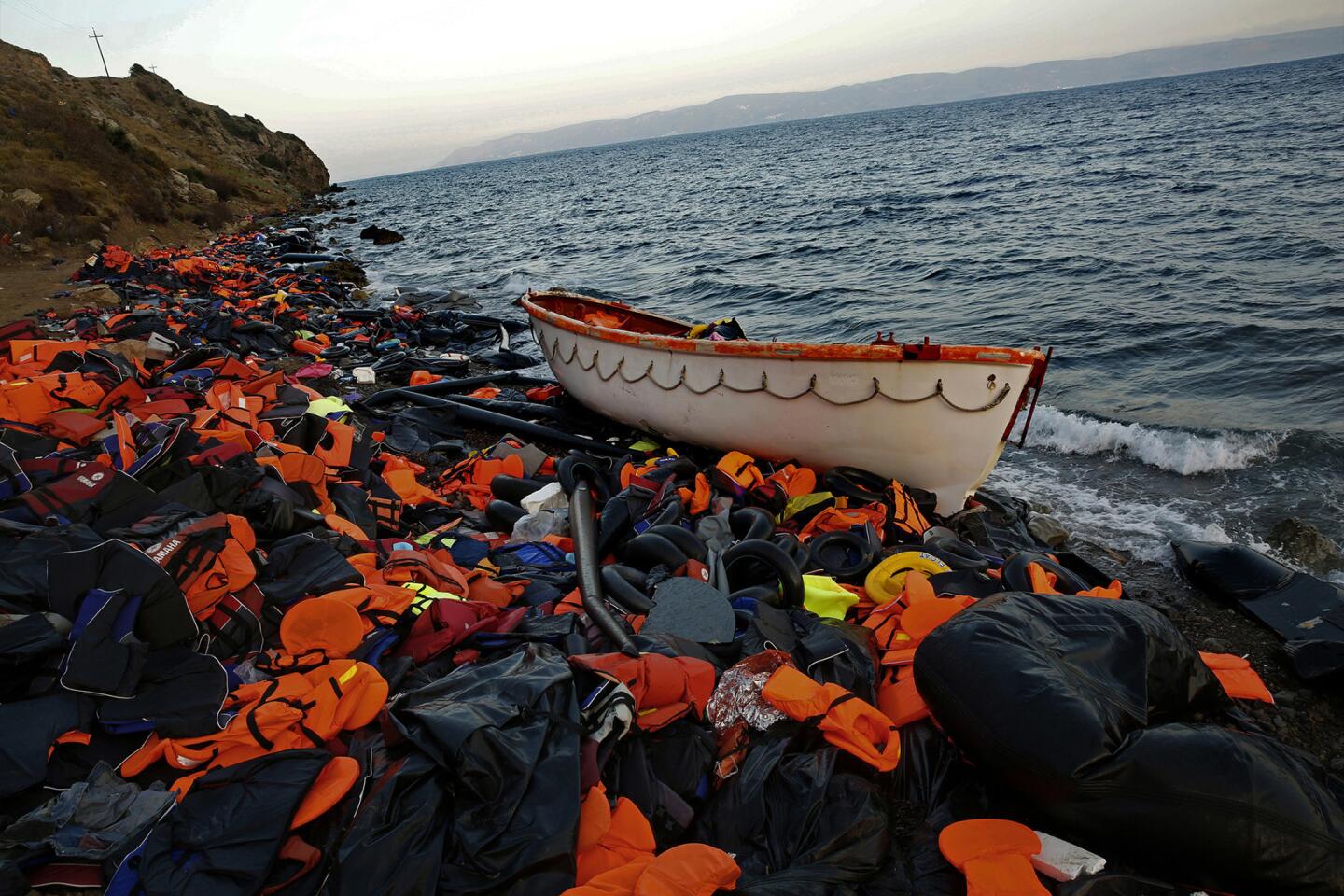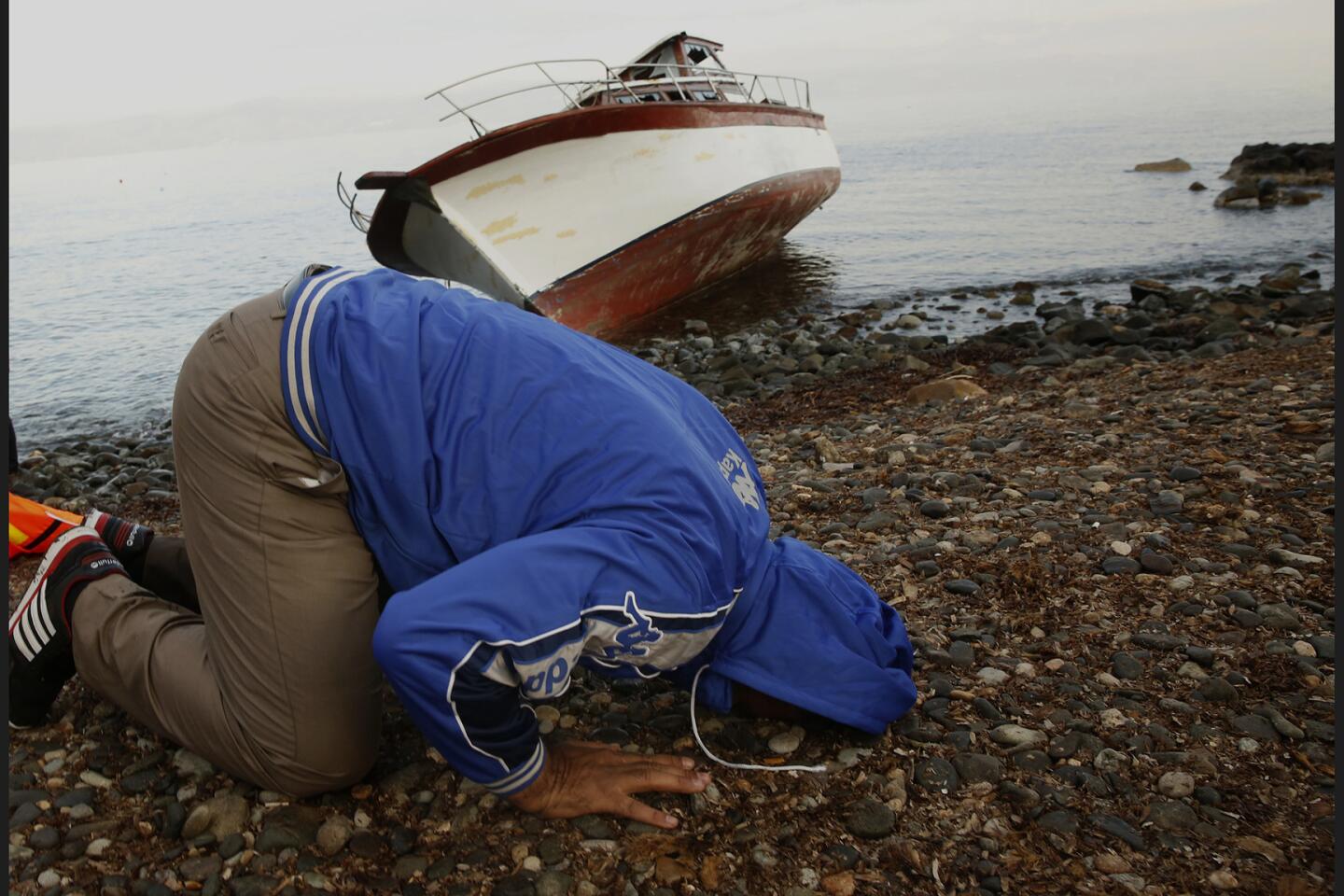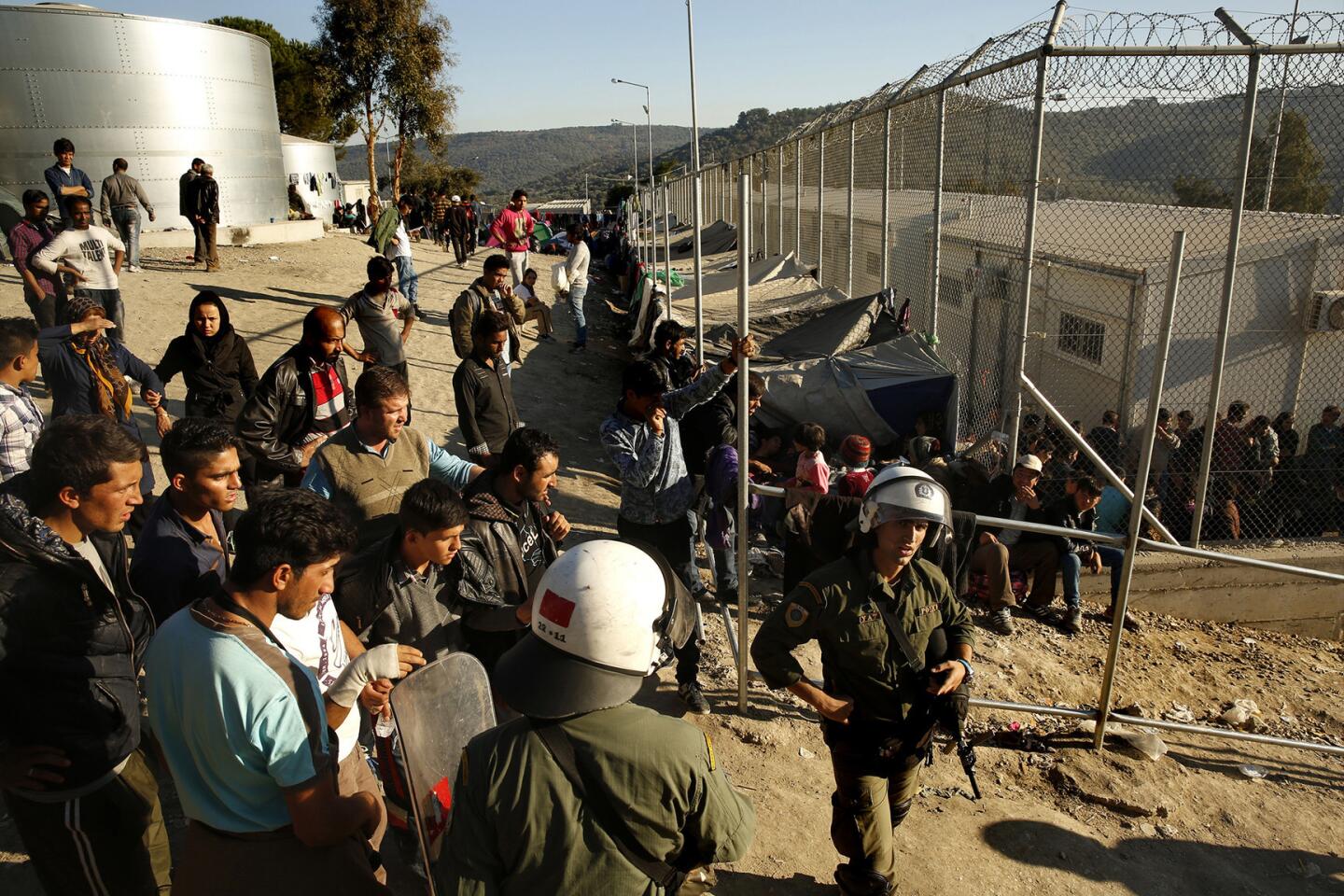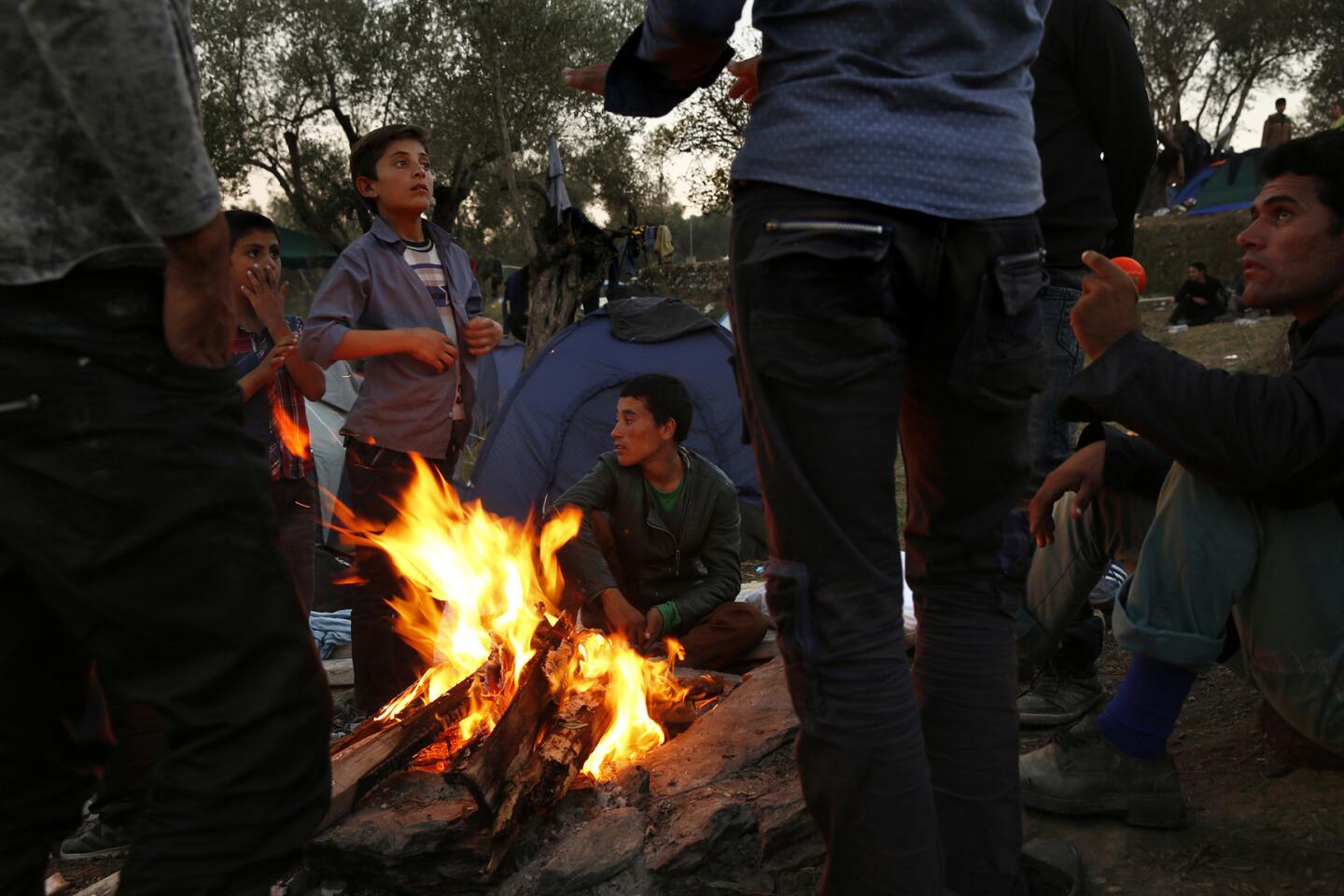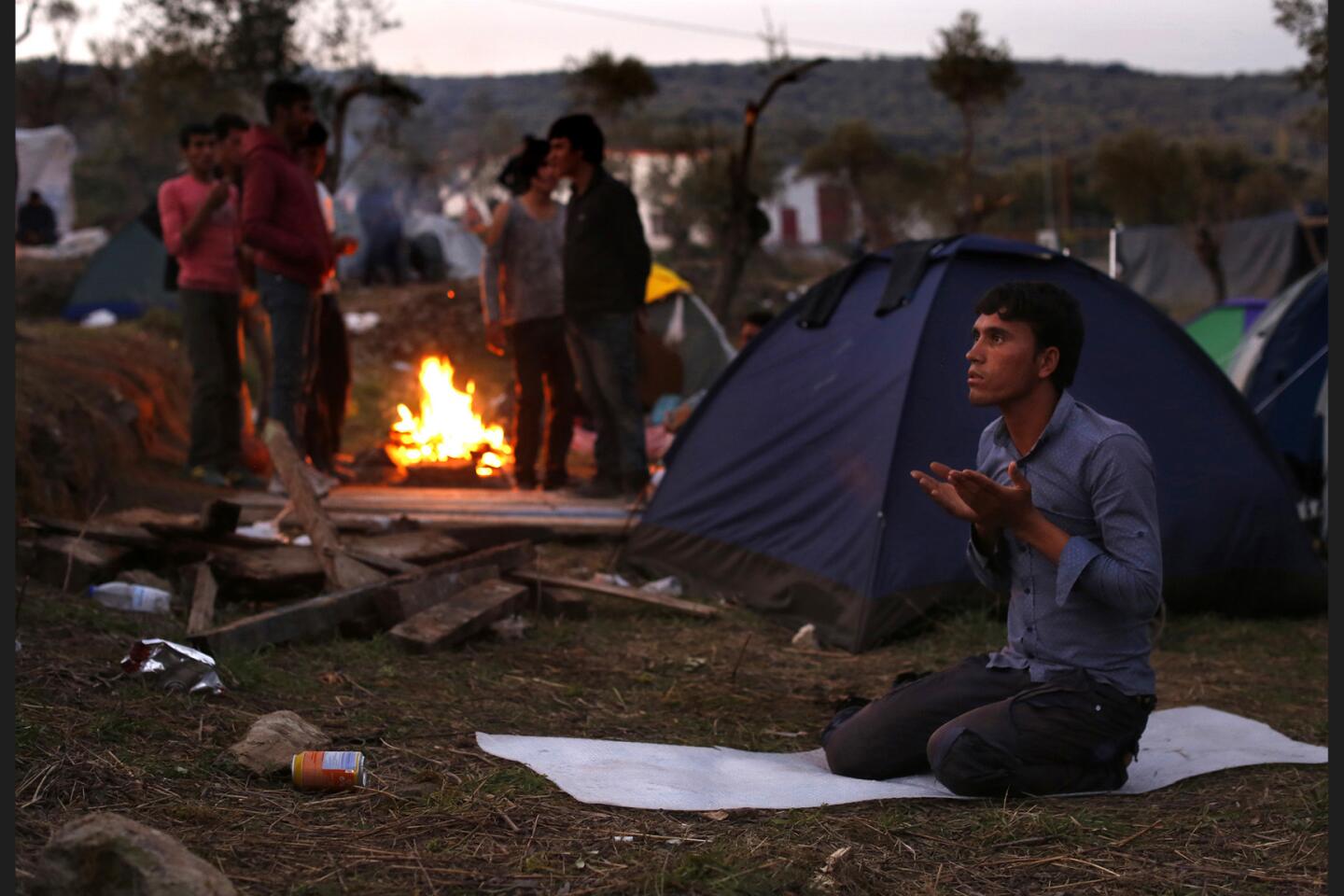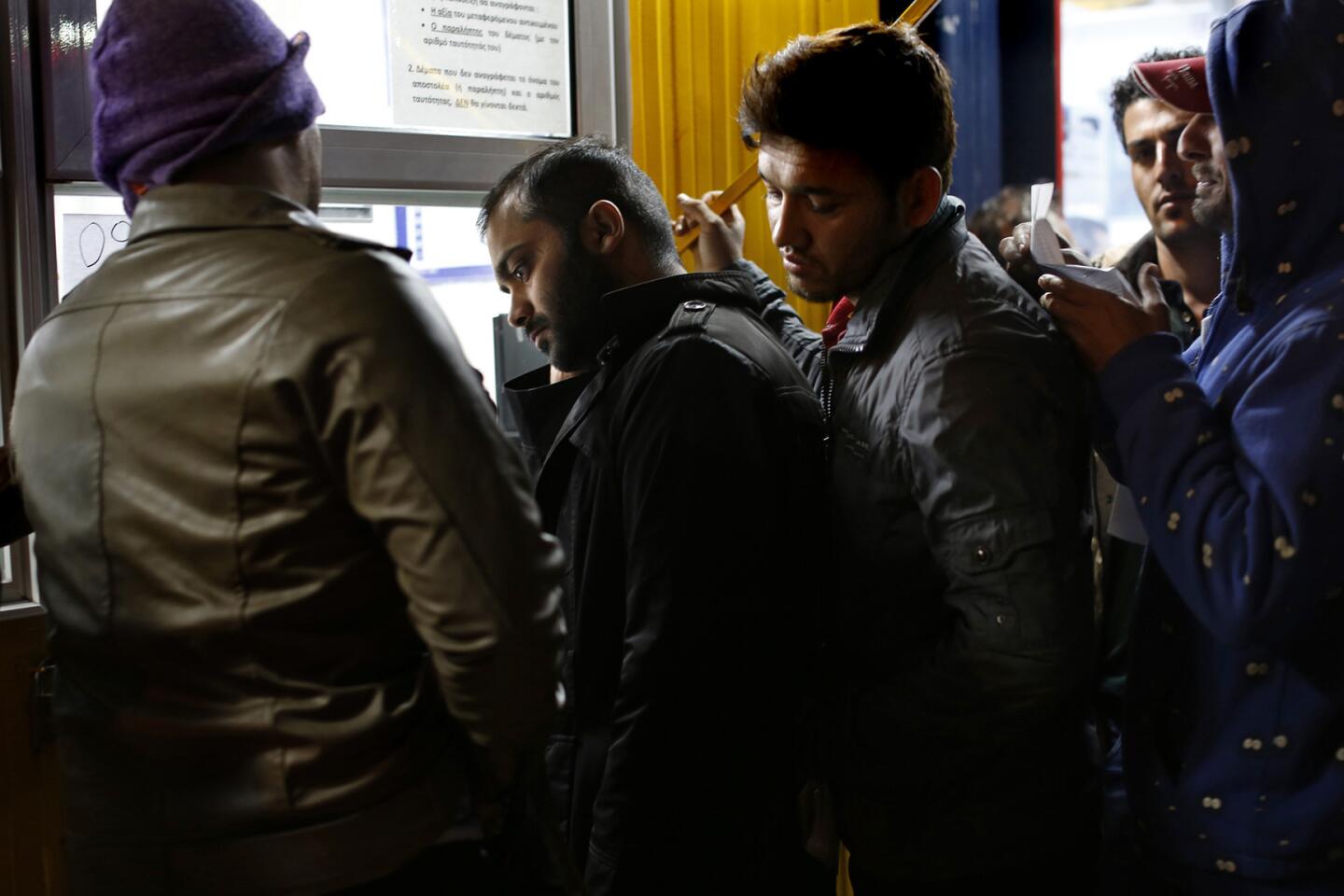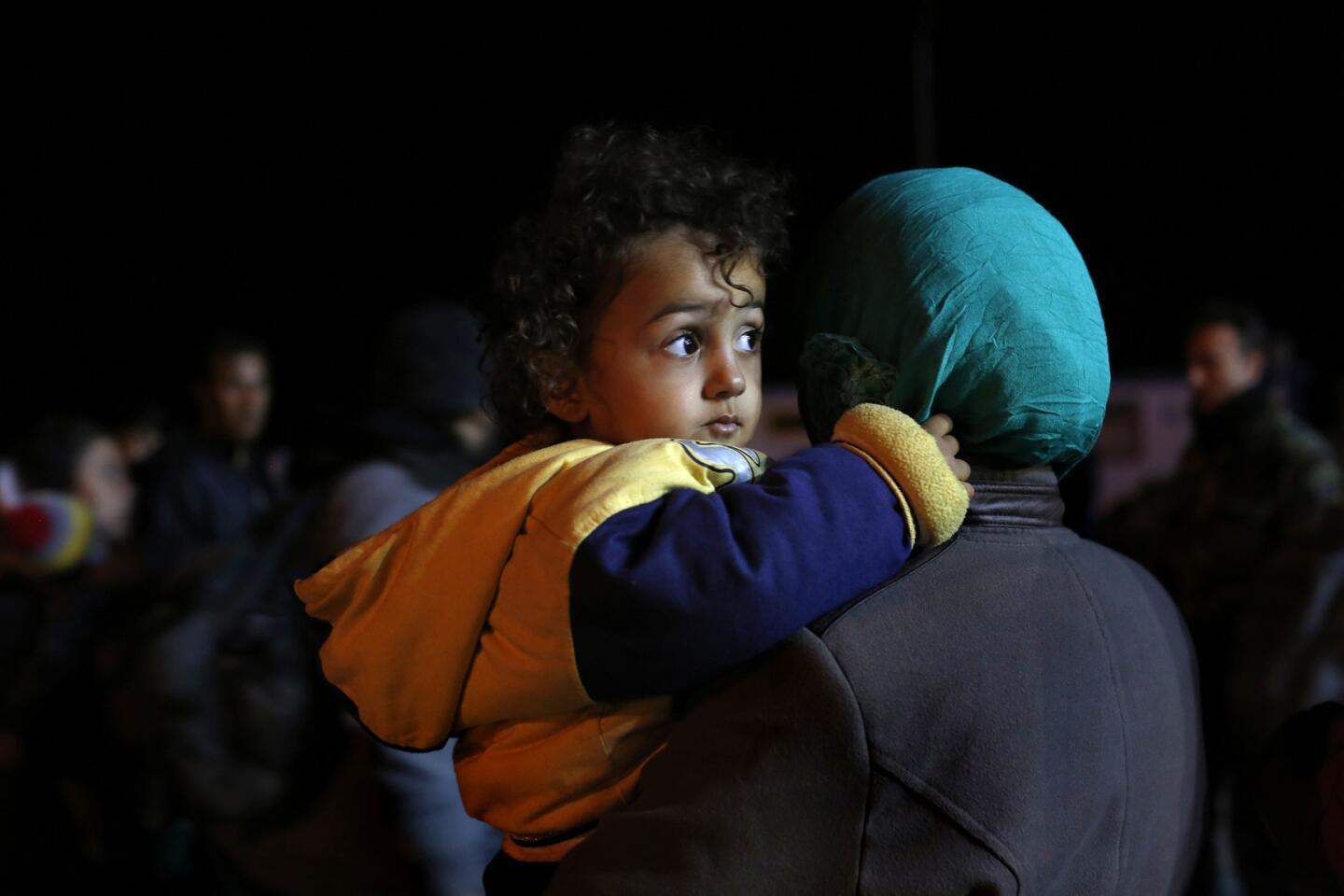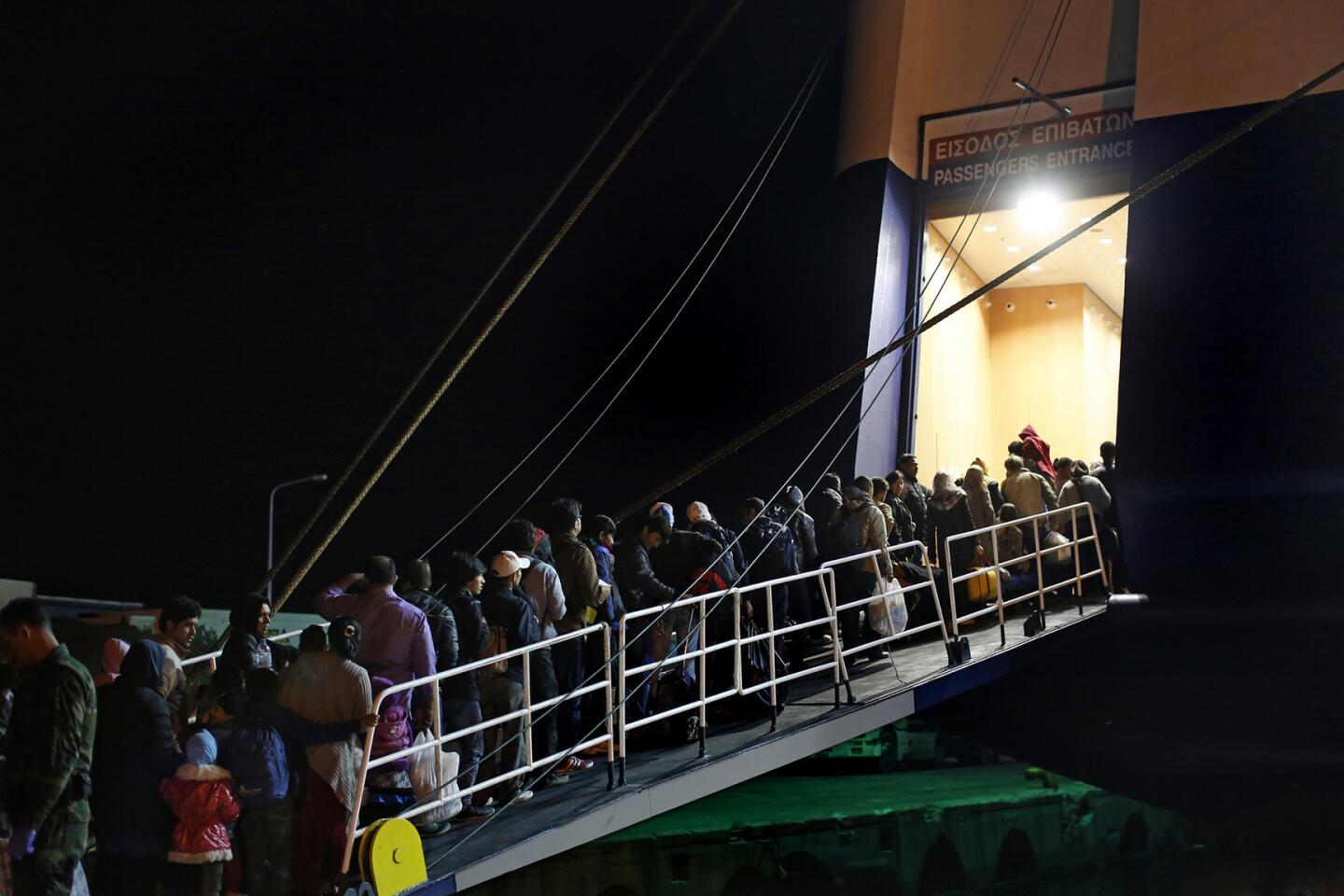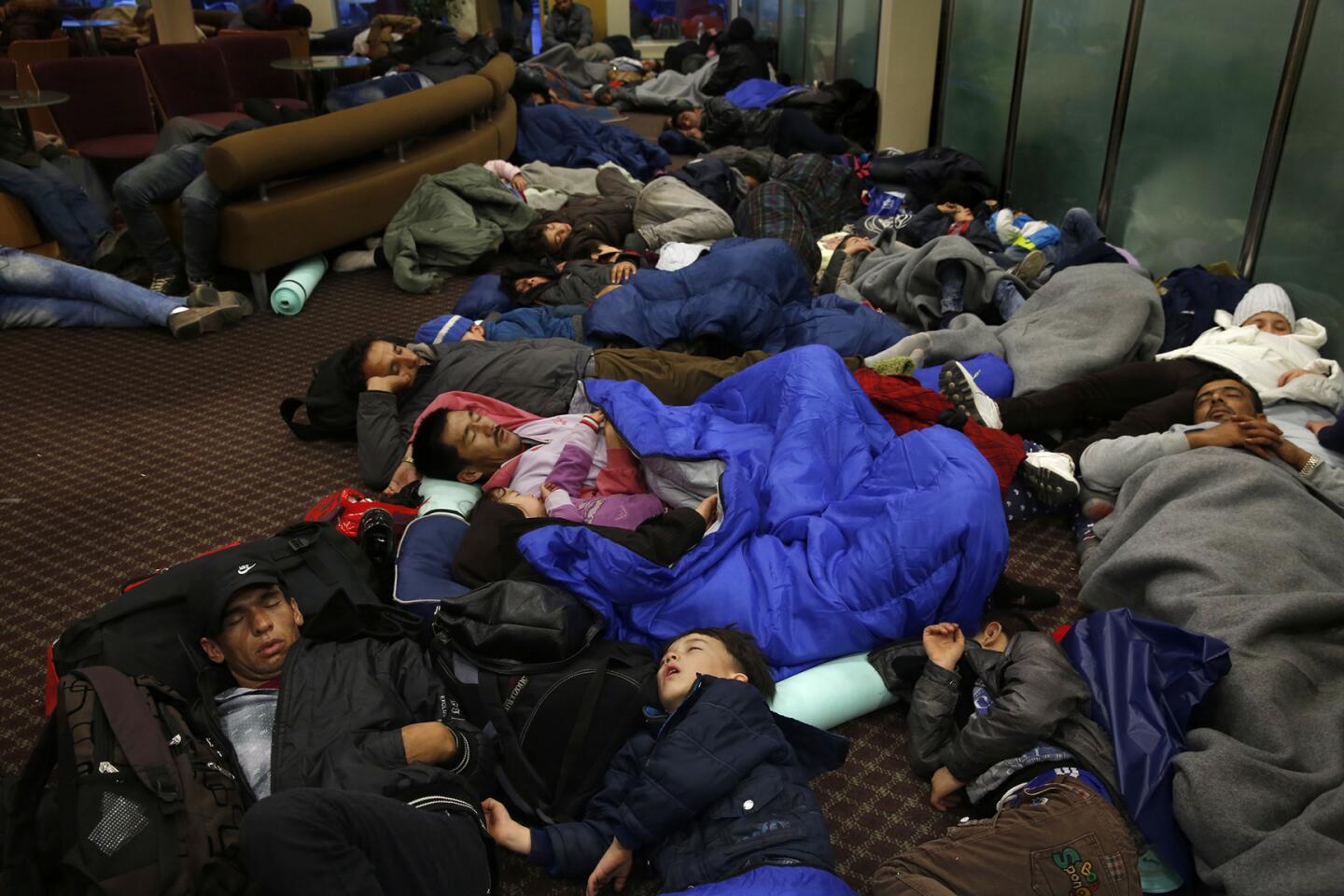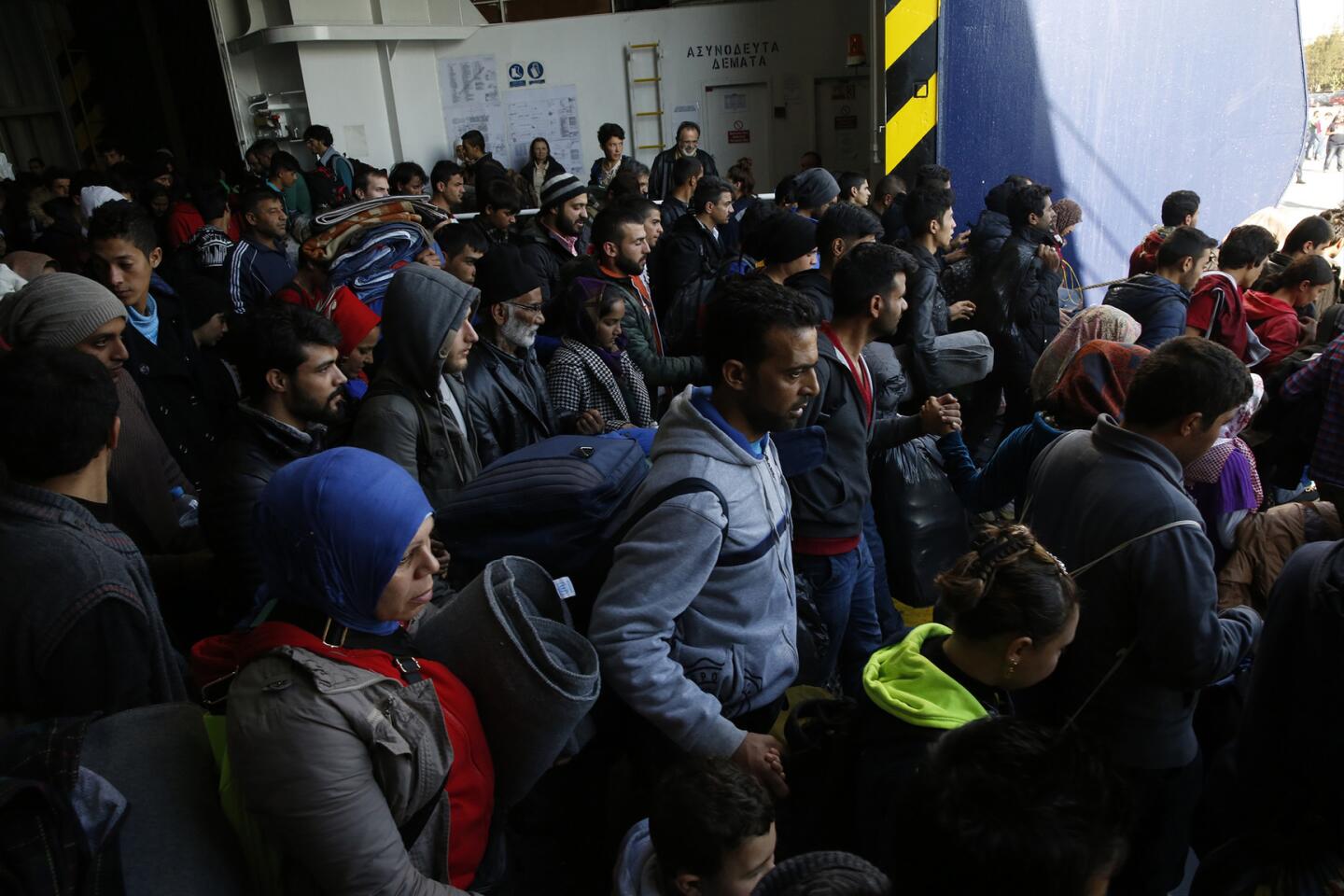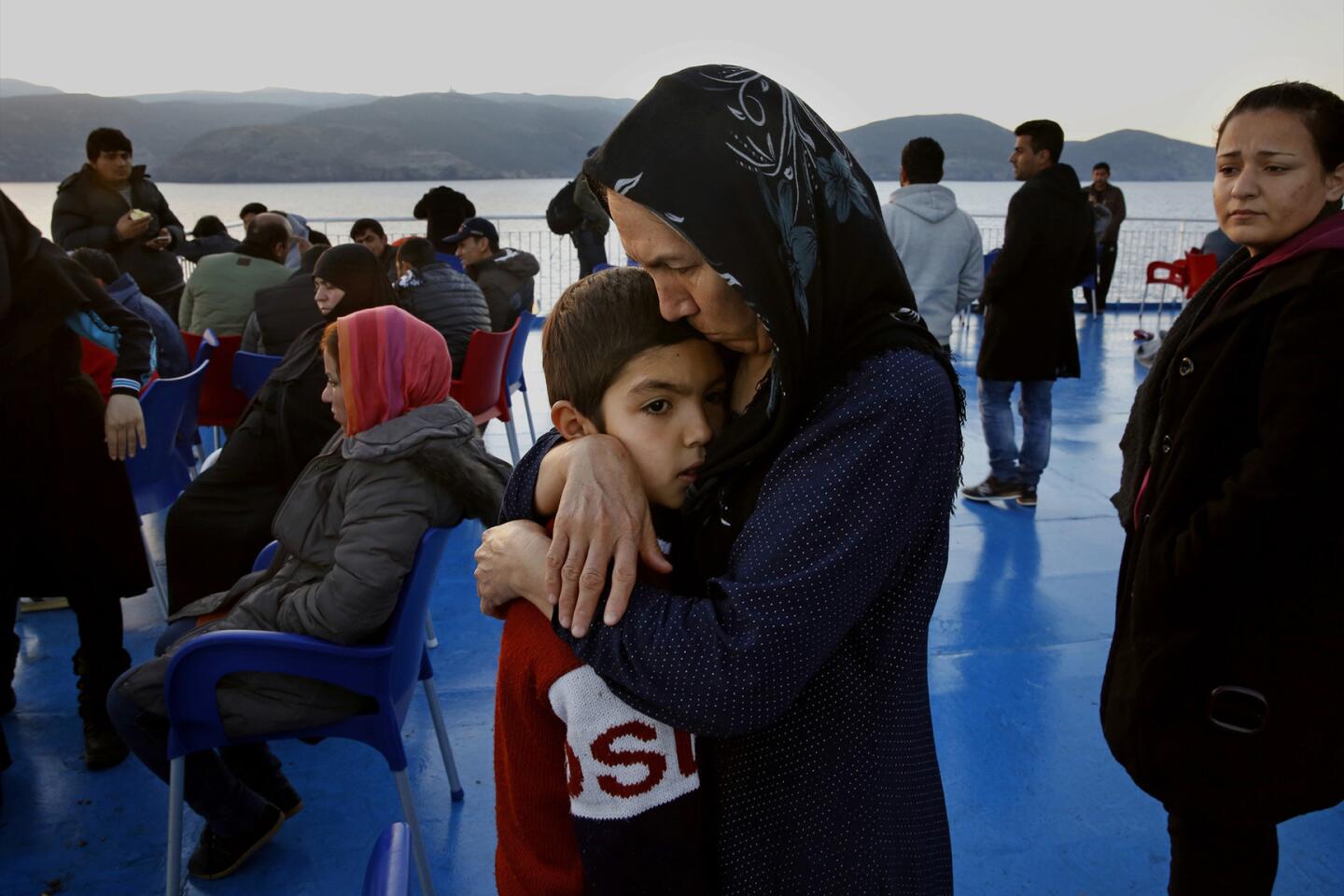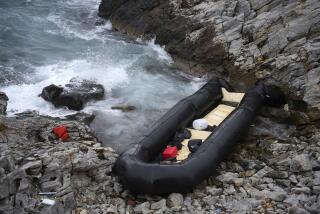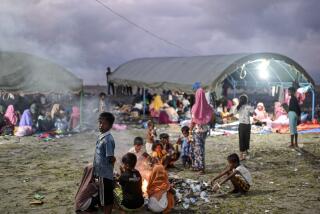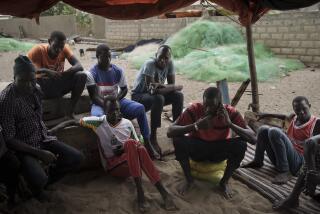Photographer’s journal: A look at the migrant crisis in Lesbos, Greece
At the break of dawn, spotters on the northeast coast of Lesbos assume their positions at lookout points along the rugged sea cliffs. They scan the horizon through high-powered binoculars, looking for tiny black spots on the Aegean Sea. Each spot is a rubber raft ferrying up to 35 refugees from Syria, Iraq, Afghanistan or other troubled lands.
The rafts arrive at the Greek island like clockwork as volunteers rush to meet them. Babies, some too small to fit in their inflatable life vests, are unloaded first. Then the women and children, and finally the men, are helped ashore. I watched men fall to their knees in prayer and women pass out in shock.
Join the conversation on Facebook >>
When the seas are calm, the five-mile crossing between Turkey and Lesbos can be made in less than two hours. But even a mild wind can stir up waves and fear. Many passengers have never been on a boat and don’t know how to swim.
This year alone, 430 people have died crossing these waters. Collecting $1,000 or more per person, Turkish smugglers overfill the rafts, which are hastily assembled with rubber patches and unreliable engines. “The smugglers made us throw all of our bags overboard so that more people could fit in the boat,” said Amal Ahmad. “I was afraid for my daughters.”
The United Nations High Commissioner for Refugees estimates that 700,000 migrants have already arrived and that as many as 5,000 more will come ashore each day between now and February. The Greek government is struggling to cope, despite help from many aid organizations.
In a report released this week, Diane Goodman, a senior official at the U.N. refugee agency, lamented that the world had not acted to make the journey to Europe less dangerous.
“Syrians risk their lives and the lives of their children to try to make it to Europe in the search for educational and employment opportunities, for the chance to live in security and peace,” she said. “And yet, there could be legal ways of coming to Europe — through family reunification, student or work visas, private sponsorship or more resettlement places — that would be safer, more regulated and infinitely more humane.”
Riding the overnight ferry from Lesbos to Athens with hundreds of refugees was an experience I’ll never forget. As the sun rose on the horizon, many immigrants were passed out from exhaustion on the decks. Others stood looking out to sea and talked of their hopes for a new life in Europe, destination unknown.
FLEEING SYRIA SERIES
Grateful for his German hosts, a refugee worries for family still in Syria
Fortune struck for these Syrian migrants, but can they make it in California?
‘We want to escape but we fear the sea’: Exile in Egypt
More to Read
Start your day right
Sign up for Essential California for news, features and recommendations from the L.A. Times and beyond in your inbox six days a week.
You may occasionally receive promotional content from the Los Angeles Times.
